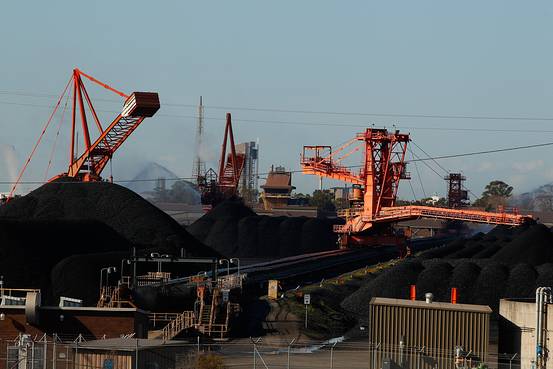Thermal coal miner New Hope is boosting returns from its enormous cash pile by turning to fixed income investing, after the producer decided it needed alternative places for its funds because banks won’t support fossil fuel borrowers. It did not renew a $100 million term deposit this year.
The $4.4 billion listed group, backed by listed investment company Washington H Soul Pattinson, has for the first time placed funds with fixed income managers, underscoring how rich the sector has become from bumper commodity prices and a rapid deleveraging enforced by climate-sensitive lenders.
New Hope expects it will earn between 8 per cent and 11 per cent annually from the basket of bond investments. “If we give it back we won’t get it again,” New Hope chief financial officer Rebecca Rinaldi said, referring to activist pressure on banks to cut off coal’s access to capital. “It’s such a volatile industry, we are really concerned with capital preservation and overall liquidity.”
New Hope, which operates coal mines in NSW and Queensland, returned $1.39 billion through dividends and buybacks to shareholders last financial year. It still has $646 million in net cash, but no obvious avenue for earning interest on that money. The miner estimated it is investing about $120 million of that with fund managers, including in residential mortgage backed securities, European bonds and retail bonds.
In some fixed income products, an investor’s cash is callable in a matter of days, while others attracts a penalty for early redemptions. New Hope is seeding a war chest now to ensure it “easily funds the rehabilitation when our mines close”, the CFO said. “We see this as being a responsible operator.”
Other coal miners are also turning their minds to finding better returns for their lazy cash. Paul Chong, whose family company has a holding in Queensland’s Jellinbah metallurgical coal mines, said in an interview that banks won’t fund coal projects any more.
Activist groups such as Market Forces document the value of loans individual banks make to oil, gas and coal companies. But there is no equivalent for financial products or wealth strategies.
Other producers, like Whitehaven Coal, are using their high cash levels to fund acquisitions. Whitehaven will pay as much as $US4.1 billion ($6.4 billion) to acquire two BHP coking coal mines in Queensland. Whitehaven will pay BHP an upfront sum of $US2.1 billion; it had $2.45 billion of cash on hand at September 30. Wood Mackenzie analyst Rory Simington said coal companies are “flush with cash”.
“There has been some hoarding of cash, companies are sitting on quite a lot of money and considering what they are going to do with that,” he said. “I’ve had a number of producers tell me that their asset x and y earned more money in 2022 than it did in its entire life before that.”
Mr Simington expects more divestments and acquisitions, mainly led by investor pressure to get out of thermal coal. He added that asset valuations had not improved significantly despite the record conditions last year.






